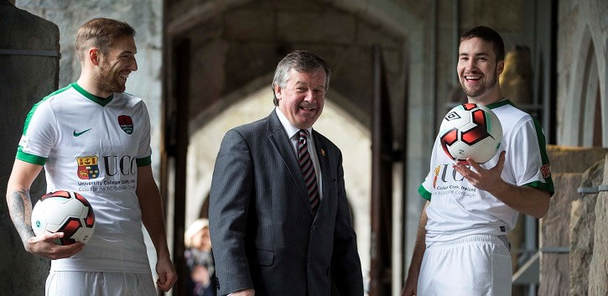The 2017 League of Ireland Premier Division is drawing to a close. Unlike almost all other UEFA leagues, the fixture list is organised around a March to October schedule, colloquially known as Summer Soccer.
With just five games left in the Premier Division League Table has a familiar look. Last year’s 2nd placed team, Cork City are 14 points clear of reigning champions Dundalk. Dundalk are a further 12 points clear of the chasing pack.
While this would not be anything out of the ordinary for many European leagues, for the League of Ireland it is quite a rare occurrence. Should Cork City and Dundalk finish first and second (in any order) it will be the first time in the history of the League, now nearly 100 years old, that the same teams finished in the top two positions in four consecutive seasons.
A closer look at the history of the League of Ireland demonstrates just how unusual this is. The league is somewhat of an outlier in a European context. Between 1963 and 2012 (50 seasons) the league had a higher number of champions (15 clubs) than any other European league. The most successful club over this period (Shamrock Rovers) also won the fewest number of league titles (just 7) when compared to the most successful clubs in every other European League.
From this information we can conclude that the League of Ireland is very well balanced and ultra-competitive, relative to other European league. But what might this mean?
This sort of stability is not something you associate with the League of Ireland. While some argue that it makes football boring, the current dominance of two teams in the League can only be a good thing generally. Repeated dominance will result in continued participation in the qualifying stages of the Champions League and Europa League. Anecdotal evidence suggests experience and repeated opportunity results in a greater chance of success.
The experiences of both Cork City and Dundalk over recent seasons can only help during European adventures next summer. Success at this level raises the League of Ireland's UEFA league co-efficient. A virtuous cycle will result, with success breeding more success.
An earlier version of this piece appeared in the Cork City match-day programme on the 9th of July 2017.

 RSS Feed
RSS Feed